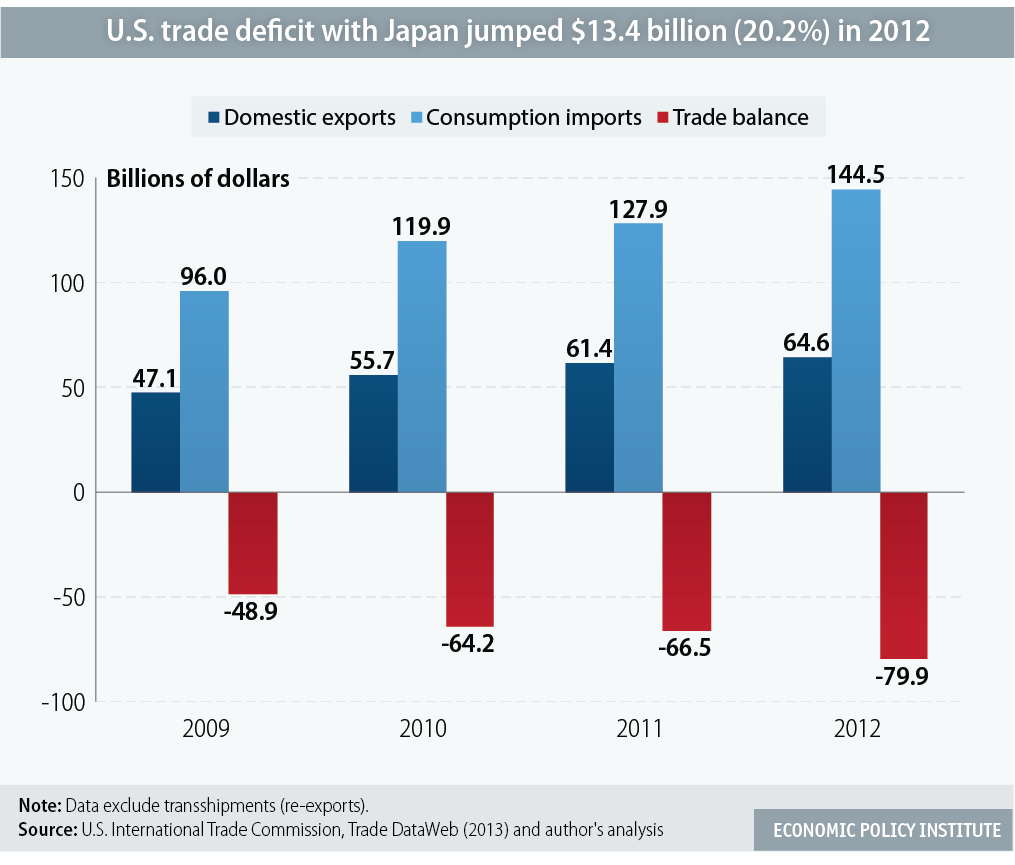The U.S. trade deficit with Japan has increased steadily over the past four years, reaching $79.9 billion in 2012, an increase of $13.4 billion (20.2 percent). Last month, the United States and Japan agreed on language that could allow Japan to join negotiations to enter the Trans-Pacific Partnership (TPP), a proposed free trade agreement with 10 other Asia-Pacific countries (a new round of negotiations on the TPP began in Singapore this week ).
Exports support U.S. jobs but the larger volume of imports displaces even more jobs. Trade deficits such as the one we have with Japan have cost the United States millions of jobs, most of them high-paying jobs in manufacturing. Signing trade deals is an ineffective way to create jobs, in large part because they usually result in higher trade deficits. One of the biggest causes of our trade deficits is currency manipulation, which acts as an artificial subsidy to other countries’ exports and a tax on U.S. exports. Japan has a history of currency manipulation, and Japanese Prime Minister Shinzo Abe announced that he intended to weaken the yen when he was elected in December. The yen has declined 11.9 percent since then.

